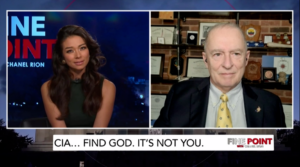“[President Jimmy Carter] told his National Security Adviser, Zbigniew Brzezinski, that he ‘would be willing to lose the presidency for the sake of genuine peace in the Middle East.’”
Eric Alterman[1]
As of this writing, 98-year-old former President Jimmy Carter is in hospice at his home is Plaines, Georgia. Of all the recent American Presidents (he was the 39th President—1977 to 1981), I find Carter perhaps the most intriguing. First and foremost, he was a man of sound moral character and judgement—two qualities in short supply in Washington D.C. these days on both sides of the aisle—unapologetic about his deep Christian faith and a leader who honestly sought to inject his beliefs into domestic and foreign policies. Secondly, as a simple Georgia peanut farmer at heart, he was viewed from day one as an outsider to the “swamp elites” who never really accepted him as their own. If you are old enough to remember, the media focused on his dysfunctional and opportunistic brother Billy (of “Billy Beer” fame). Thirdly, Jimmy Carter was probably the smartest President we’ve ever had, graduating from the U.S. Naval Academy and as a nuclear expert aboard submarines. And finally, because he was portrayed as weak by many in the media, and due to perceived weakness in handling the Tehran hostage crisis (including a botched rescue attempt), his term in office was limited to four years and he was broadly viewed as a well-meaning but ineffective leader.
I don’t even mean to suggest that this missive is a comprehensive study of Jimmy Carter as a man or, for that matter, as President, but rather an effort to portray the man through the prism of two vignettes: first, his herculean role in bringing together two long-time antagonists Anwar Sadat of Egypt and Menachem Begin of Israel at the so-called Camp David Accords; and secondly, his role—after his Presidency had ended—in helping to almost completely eradicate a deadly and painful parasitic worm disease (the Guinea worm) in Africa.[2]
Few would dispute that Jimmy Carter was much more effective in his role as a former President than as an acting President. He was, until sidelined by cancer, one of the world’s great “Elder Statesmen.” Or as journalist Robin Givhan observed: Carter leaves “an indelible memory of modesty and fallibility.”[3] Long after he left office, in 2002, Carter was awarded the Nobel Peace Prize for his “untiring efforts to find peaceful solutions to international conflicts, to advance democracy and human rights, and to promote economic and social development.”[4]
So, how does my story intersect with that of Jimmy Carter?
Several years ago, I approached the Academic Dean of The College of the Ozarks with what I thought was a novel proposal: to teach a college class for upper-level history students on the modern Middle East, focusing on five pivotal events of 1979: the aforementioned Camp David Accords, the seizure by Shiite radicals of the Grand Mosque in Mecca,[5] the Iranian Revolution,[6] the Soviet invasion of Afghanistan[7] and the sacking of the U.S. Embassy in Pakistan by Muslim firebrands. I suggested to the Dean that many, if not all, of the problems facing U.S, foreign policy decision-makers in the Middle East could be traced back to those 1979 events. At the time I taught the course, the U.S. was still trying to rid itself of the vestiges of the post 9/11 era in the lingering aftermath of President George Bush’s Global War on Terror—GWOT.[8] Many of you will find it amusing that during my final couple semesters as Visiting Professor at CofO, some of my students not only had no memory of 9/11, they weren’t even born when it happened!
“Sigh.”
At any rate, the Dean agreed with my initial proposal, and I taught the class. Even now, many years later, it remains one of my favorite course offerings.
We began the class with a quick overview of Middle Eastern religious and cultural concepts before trying to “drill down” into some areas—such as the complexities of Israeli politics and the delicate tightrope walked by Anwar Sadat. Indeed, today many of those same issues confront newly elected Israeli Prime Minister Benjamin Netanyahu and all Egyptian leaders in the post-Mubarak era. In retrospect, I’m not sure how much the students absorbed from that college course but preparing the lectures for each class session was a research dream for a history professor.
After the introductory class lectures, we began discussing at length the political backdrop of the Camp David meetings between Begin, Sadat and Carter. A great book to read on the topic is Thirteen Days in September by Lawrence Wright.[9] I developed a great deal of respect for former President Carter and his dedication to the peace process as I put together notes concerning that event. I still have them.
According to Edward Luce, Carter single-handedly “did more for Israel’s security than any U.S. president since.”[10] Indeed, the resulting treaty from the Camp David negotiations ended decades of hostility between the two countries, still remains a lynchpin for regional security, and guaranteed Israeli political control over territories seized in the 1967 Arab-Israeli War (including the West Bank). After the treaty, Carter believed that he had been misled by Menachem Begin into thinking the Israeli government would suspend the building of new settlements in the West Bank.[11] His belief in this regard never wavered.
Carter’s individual Camp David diplomacy marked the high-water point for his administration’s foreign policy.
But Carter’s true greatness, in my view, revealed itself after he left the White House.
As one of many examples, in 2015, just hours before Jimmy Carter began radiation treatments for brain cancer, he spoke of his hope that the world would be purged of the Guinea worm disease: “I’d like the last Guinea worm to die before I do, “ he said.[12] When Carter set up the global Guinea Worm Eradication Program in 1986, about 3.5 million humans across rural Africa and Asia were afflicted by the parasite—and the excruciating pain it caused—as it had since the early history of man. Indeed, the Latin word for the Guinea worm disease Dracunculiasis means “affliction with little dragons.” Some scholars even suggest the disease may have been the “fiery serpents” that attacked the Hebrew wanderers in the desert in the Old Testament narrative.[13]
By 2022, however, the number of cases had dwindled to 13.
This is, by any measure, a remarkable achievement. As such, Carter’s most enduring legacy could be making the Guinea worm the second infectious disease to be eradicated (the first was smallpox in 1980).[14]
The sad but uncomfortable truth is that the Democratic Party today would never embrace a Christian born-again believer as its presidential standard bearer. In the days ahead, the liberal media will portray Jimmy Carter the man and President according to its changing political optics. In my view, Carter championed environmental causes out of his belief that humans should act with godly stewardship toward this planet (not the self-serving politics and godless practices of today’s environmental headline seekers); he sought a social justice centered on the teachings of Jesus Christ (rather than human intentions or the insatiable desire by leftists to find an “oppressor” class); and pursued peace and democratic values around the globe as the highest expression of an individual’s worth in Christ.
I know some of you will disagree with my characterization of Carter the man and the President.
That is your prerogative.
I choose to remember Jimmy Carter as a modest, but thoroughly vulnerable human being, who never strayed from his roots as a simple Georgian Sunday School teacher, who believed with all his heart that Jesus Christ is Lord.
That is what separates the believers from the pretenders.
When the final chapter of the story of our lives is written that is what really matters.
[1] Quote taken from Eric Alterman, “Jimmy Carter Took More Risks for Middle East Peace Than Any Other President—By Far,” The New Republic, Feb. 2023.
[2] For an excellent discussion of Carter’s role in eradicating the Guinea worm disease, see Jenny Jarvie, “In his final days, Jimmy Carter on cusp of humanitarian goal: Eradicating a parasitic worm,” The Los Angeles Times, Feb. 27, 2023.
[3] Robin Givhan, “Jimmy Carter’s grace and vulnerability,” (Perspective), The Washington Post, Feb. 21, 2023.
[4] Ishaan Tharoor, “Jimmy Carter’s Warning: Without Peace, Israel must face ‘apartheid,’” The Washington Post, Feb. 24, 2023.
[5] For a two week period ending on Dec. 4, 1979, Saudi Shiite militants occupied the Masjid al-Haram, the Grand Mosque in Mecca—the holiest Islamic site—seeking to overthrow the House of Saud and install a self-proclaimed Mahdi (a messianic figure in Muslim eschatology). The event marked an escalation in Muslim-on-Muslim terrorism and violence.
[6] Also called the Islamic Revolution where the last ruler of the Pahlayui Dynasty (the Shah) was ousted and replaced by a theocratic government led by religious cleric Ayatollah Khomeini (later “Supreme Rujler”). Angered by the U.S. acceptance of the Shah for medical treatment, in early Nov. 1979, students besieged the U.S. embassy in Tehran and took the staff hostage (crisis lasted 444 days). Shah
[7] On Dec. 24, 1979, forces of the Soviet Union entered Afghanistan to shore up a pro-Soviet government; they left in Feb. 1989 and casualties from the war, and its unpopularity back home, was one of the contributing factors to the fall of the Soviet Union.
[8] President George Bush (43drd President in office 2001-2009) declared a global war on terrorism on September 16, 2001, and although the “war” was officially declared over by President Barack Obama in early 2013, most see it dragging on until the U.S. withdrawal from Afghanistan at the end of August 2021—duration of the GWOT using this metric, 19 years, 11 months and 2 weeks). The direct costs of the GWOT is estimated at $8 trillion (according to a 2021 study by the Watson Institute for International and Public Affairs).
[9] Lawrence Wright, Thirteen Days in September: Carter, Begin, and Sadat at Camp David, (Knopf Publishing, 2014). I extensively used another of Wright’s books—The Looming Tower: Al-Qaeda and the Road to 9/11—in my Introduction to Terrorism course for the Criminal Justice Department on campus.
[10] Edward Luce, “Jimmy Carter has been wronged by history,” Financial Times, Feb. 2023.
[11] Tharoor, “Jimmy Carter’s Warning.”
[12] Jarvie, “In his final days.”
[13] Ibid.
[14] Ibid.




